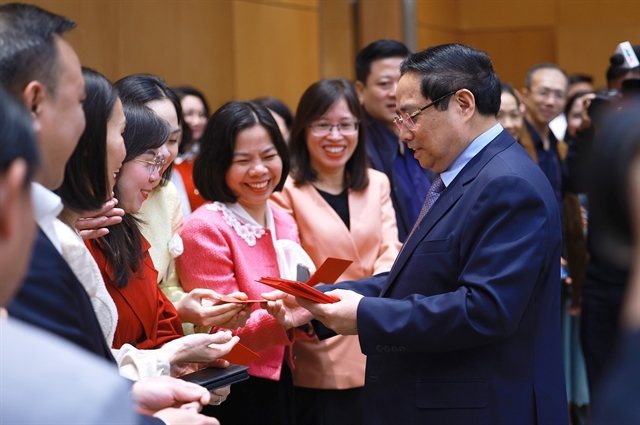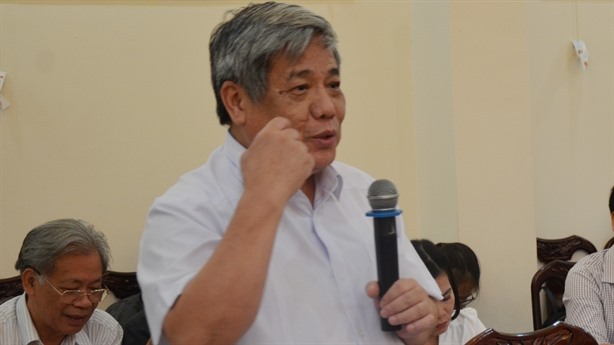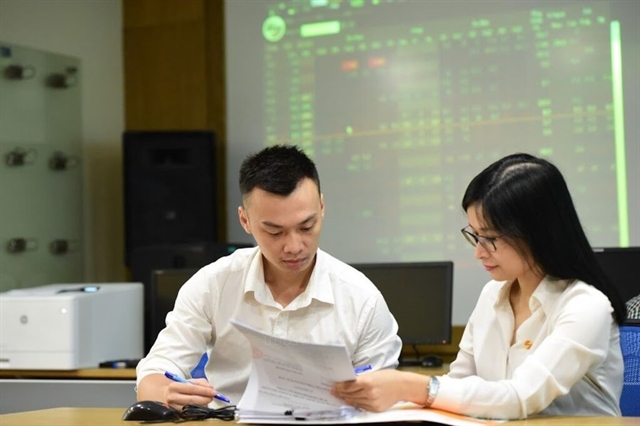 Opinion
Opinion

Vũ Minh Giang, Chair of Scientific and Training Council of the Việt Nam National University, talks to the newspaper Công Thương (Industry and Trade) on how to improve the competitiveness for university graduates in the labour market.
 |
| Vũ Minh Giang. — Photo baodatviet.vn |
Vũ Minh Giang, Chair of Scientific and Training Council of the Việt Nam National University, talks to the newspaper Công Thương (Industry and Trade) on how to improve the competitiveness for university graduates in the labour market.
Vietnamese universities self-financing has been a hot topic for discussion for many years without a final conclusion. What’s your opinion?
There are various interpretations of the concept of self-financing for universities in Việt Nam. However, the simplest definition is how far a self-financing Vietnamese university can make its own decisions, such as having the right to decide its financial matters, human resources, organisational structure, physical establishment and the domain of learning.
Based on that concept, the university council will bear responsibility for the quality of the university’s academic affairs while being subject to the management of the Ministry of Higher Education. On the other hand, all universities should show accountability to society to earn the people’s confidence and to meet society’s requirements.
Self-autonomy among universities has been experimented with for three years, and results have not been satisfactory. What have the problems been?
The practice of self-autonomy has helped universities be more dynamic in making their own policies and particularly, to focus on their key training areas to meet market demand. However, this model has not achieved its targets due to various reasons, particularly poor awareness about the concept of self-autonomy.
Most of the autonomous universities have paid too much attention to their financial rights and their universities’ physical infrastructure – not on their teaching programme, which is the core of autonomy i.e to focus resources to encourage students to be more creative in their studies and then apply what they have learned in real life.
How should universities change their syllabus to meet the requirements of the Fourth Industrial Revolution?
The focus of Industry 4.0 is on information technology as well as on science and technology. In other words, Industry 4.0 will present us both opportunities and challenges for our human resources, labour quality and training activities. This is good food for thought for all Vietnamese universities to quickly include Industry 4.0 in their curriculum.
What mechanism do we need to make the best use of resources from businesses?
Not only economic activities, the era of Industry 4.0 also requires enterprises to invest their capital and human resources in technology. This is the right tendency as it will bring about more benefits to the enterprises.
However, most of the investment in tertiary education in our country comes from the State budget while the links between enterprises and research institutes or training institutes are very weak. This is a main reason why most Vietnamese enterprises have ordered new technology from abroad while Vietnamese scientists have to come to enterprises to offer their products.
So in my opinion, the Government should encourage enterprises to allocate a certain amount of their annual budget on scientific research and then place their order to research institutes. This is the best way to utilise the capacity and resources of both the enterprises and the scientists. — VNS




